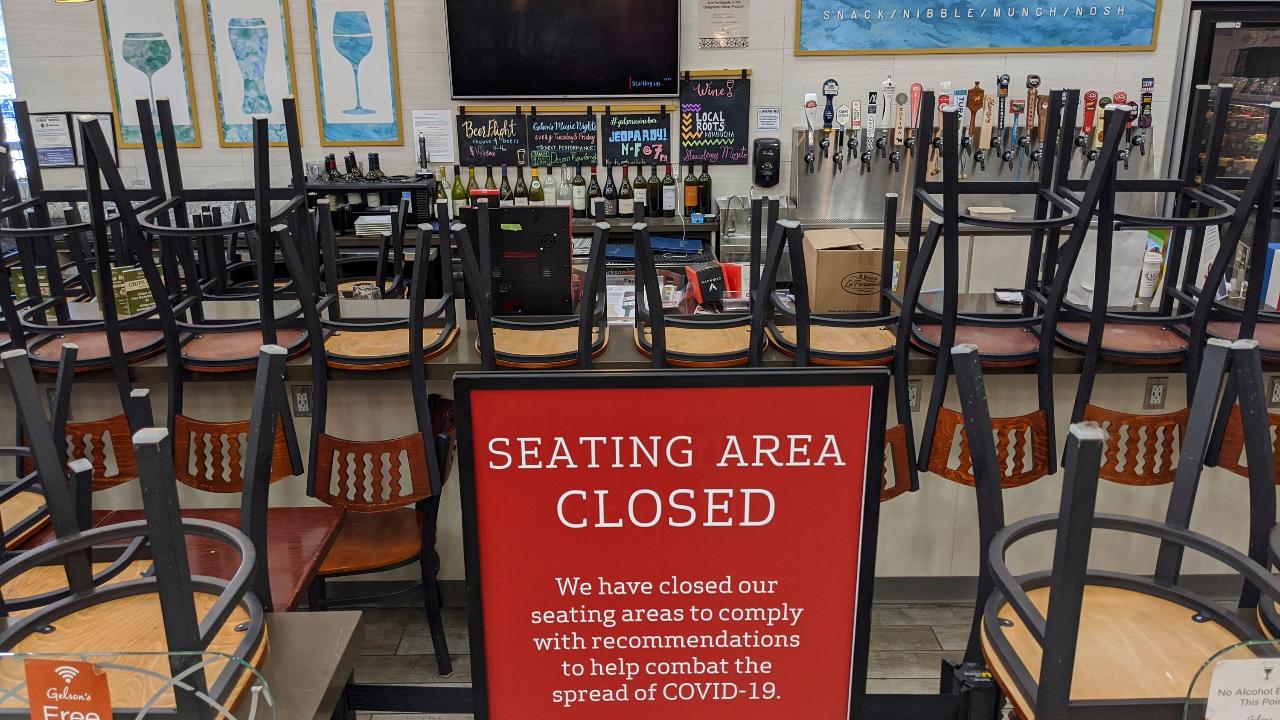Coronavirus pandemic could slash economic activity, OECD says
US output could fall by 4% in 2020, according to the report
Get all the latest news on coronavirus and more delivered daily to your inbox. Sign up here.
The coronavirus pandemic, and increasingly strict measures adopted by countries to contain the outbreak, could significantly reduce economic activity in the U.S. and the rest of the world, according to a new report published by the Organization for Economic Cooperation and Development.
In a report made available to leaders of the G-20, OECD economists estimated that if the unprecedented containment policies implemented by governments last for three months, total annual output would drop by 6 percent in the developed economies. For the U.S., where the economy was projected to grow 2 percent before the virus hit, that would mean output would fall by 4 percent in 2020.
STIMULUS DEAL INCLUDES PERKS FOR SPECIAL INTEREST GROUPS, LAWMAKERS' HOME STATES
COVID-19, the disease caused by the novel coronavirus, has hit restaurants, bars, hotels, airlines, cruise lines, automakers and entertainment venues, as cities and states have ordered the closure of non-essential businesses and directed residents to stay at home.
The OECD calculated that the affected sectors account for between 30 percent to 40 percent of total output in most economies. With activity in many of those sectors drastically reduced -- or stopped entirely -- the OECD said the initial hit to GDP could be between 20 and 25 percent, depending on how long the measures are in place.

Closed stores are shown at a central plaza and shopping district amid a public health order that has closed down most retail stores and suspended dine-in restaurant service in Santa Fe, N.M., March 27. (AP Photo/Morgan Lee)
"Our analysis further underpins the need for sharper action to absorb the shock, and a more coordinated response by governments to maintain a lifeline to people and a private sector that will emerge in a very fragile state when the health crisis is past," OECD Secretary-General Angel Gurría said in a statement.
HOW TO FILE FOR UNEMPLOYMENT BENEFITS
The first hard evidence that the virus is bringing the nation's economy to a grinding halt came last week, when the Labor Department said a record-breaking 3.28 million Americans filed for unemployment during the period between March 14 and March 21, well above the levels seen in the midst of the 2008 financial crisis. Economists expect the number to skyrocket further in coming weeks as large swaths of the economy remain shut down.
Federal Reserve Chairman Jerome Powell, during a rare televised interview on Thursday morning, said the U.S. economy may already be in a recession, but said the downturn is unlike any other the U.S. has seen before.
The head of the central bank said that the virus will dictate the recovery time-table, but warned that economic activity will decline, "probably substantially," in the second quarter of the year.
CLICK HERE TO READ MORE ON FOX BUSINESS
"We may well be in a recession," Powell said. "There's nothing fundamentally wrong with our economy, quite the contrary. In principle, if we get the virus under control, economic activity can resume, and we want to make that rebound as vigorous as possible."




















